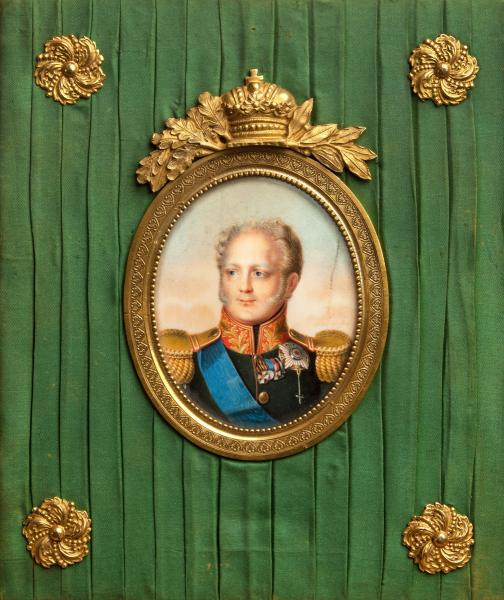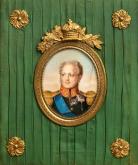Portrait of Alexander I
Первая половина XIX века
- Слоновая кость, watercolours. 6,8 x 5,4 (овал)
- Ж-437
- Period Early 19th century
- CategoryPortrait
- Share
Alexander I (1777–1825) was the oldest son of Emperor Paul I. He was raised by his grandmother, Catherine the Great, in the spirit of the philosophy of the Enlightenment. He ascended to the throne in 1801, after his father was murdered by a group of conspirators. On the first day of his reign, he declared that he would rule “according to the laws and the heart of his wise grandmother”. The main aims of his initial domestic policies were granting equal rights for land ownership and abolishing serfdom, classless education, free education at the lower levels and consistency of educational programs. Under Alexander I, five universities and three lyceums, including the one in Tsarkoye Selo, were founded. Gymnasiums, district schools, and parochial schools began operating in the provinces, districts, and villages. The Kingdom of Poland was added to Russia in 1815, and a constitution was introduced there that was seen as the first step towards the introduction of a constitutional system in Russia. After the Patriotic War of 1812 and the foreign campaign of the Russian army (1813–1814), he had great international authority. At the Congress of Vienna (1814–1815), he initiated the creation of the Holy Alliance of European Monarchs (1815), which he himself headed. He led victorious wars against Persia (1804–1813), Turkey (1806–1812) and Sweden (1808). As a result, Eastern Georgia (1801), Finland (1809), Bessarabia (1812) and Azerbaijan (1813) were added to the Russian Empire. The last years of his reign were marked by reactionary internal politics.

